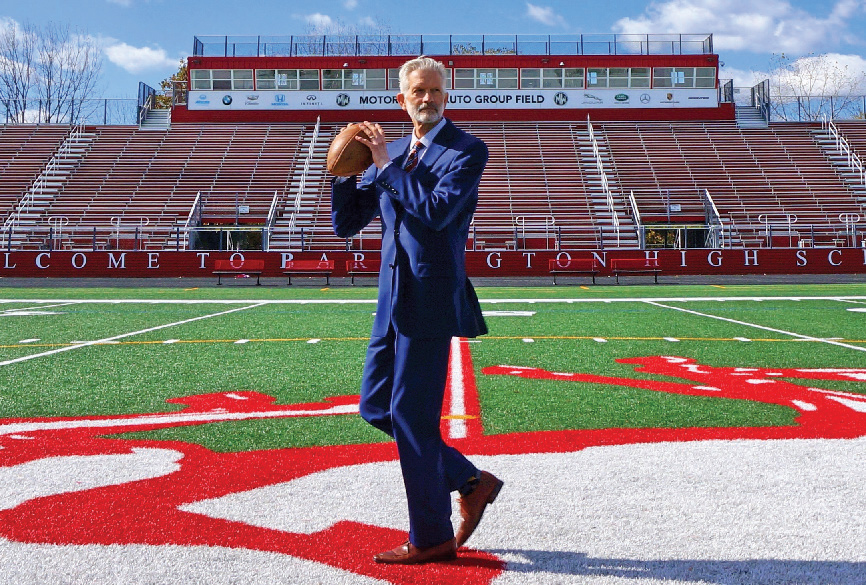
“Look sharp, play sharp,” a high school football coach once told me. He knew what we’ve been saying at Phillips for years—the way you dress influences not just how others perceive you, but how you perceive yourself and, consequently, how you perform.
Right, you may be thinking, I’d expect you to say that. You sell men’s clothing! Any other self-serving clichés? How about ‘Clothing makes the man,’ or ‘You never get a second chance to make a first impression’?
Turns out there’s an area of brain function research called enclothed cognition that looks at how our clothing choices affect performance and productivity. And the science says people who look sharp do, in fact, play sharp.
“Researchers studying links between clothes, brain activity and productivity have long found that dressing up for work can improve your performance,” says the Wall Street Journal in a September 20 article entitled “The Science Behind WFH Dressing for Zoom”. Dress matters, even in this brave new world, when many of us have been exiled from our offices to our homes.
But if I’m working from home, and will be for the foreseeable future, there’s no need to dress up, you may protest. Dr. Adam Galinsky, who co-authored the pre-pandemic research that introduced the term enclothed cognition, is prepared to disagree with you.
“In some ways, the clothes that you wear might have an even bigger impact because we see ourselves and what we’re wearing, and that sort of draws that symbolic value (attached) to it even closer to our consciousness,” Galinsky suggests. And he isn’t alone in his belief that the way we dress influences the way we feel about ourselves.
Vanessa Bohns, a researcher who also teaches organizational behavior at Cornell, believes that when we put on clothes associated with business at the beginning of our workday, we’re telling ourselves it’s time to get to work. “You feel physically different, and the clothes feel different, so that tells your body, which also tells your mind, that this is work time.”
At the risk of piling on, you should know that a group of four researchers addressed the question “whether wearing formal clothing enhances abstract cognitive processing”. Their results, entitled “The Cognitive Consequences of Formal Clothing”, were published in the journal Social Psychological and Personality Science. We’ll spare you the tedious academic-speak, but they did offer a succinct bottom line that “Five studies provided evidence supporting this hypothesis.”
However, if you enjoy academic-speak, they found that formal clothing “was associated with higher action identification level (study 1) and greater category inclusiveness (studies 2 and 3).” They learned that wearing formal clothing “enhanced a global processing advantage (study 4).” Finally, they found that “abstract processing was mediated (i.e. brought about) by felt power (study 5).”
Of course, “formal clothing” is a sliding scale these days. Wearing a coat and tie on a Zoom call would almost certainly feel contrived to yourself and appear pretentious to others. We’re working from home. Dogs bark. Children burst into rooms. Doorbells ring. But work is work. Wearing a baseball cap and T-shirt, or even a golf knit, sends a message to others on the call. More importantly, science tells us it sends a message to ourselves.
Over 40 years ago, Coach Hayes told me to tuck in my jersey. He didn’t need six PhDs and six different studies to confirm what years of coaching had taught him. When you care enough to invest in your appearance, you’re more likely to produce your best output.
Terry Owens is a clothing consultant at Phillips Men’s Wear in Barrington. The store is located at 123 E. Main Street in downtown Barrington. Call 847-381-1282 for more information or visit online at phillipsmenswear.com.
(You Think We’re Making This Stuff Up?)
Share this Story: